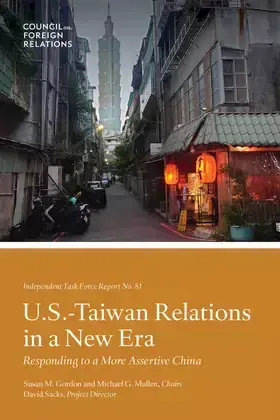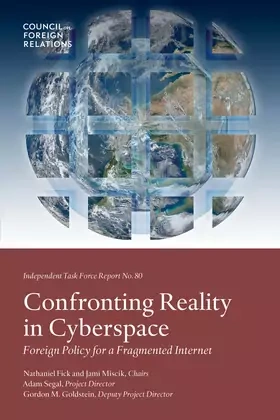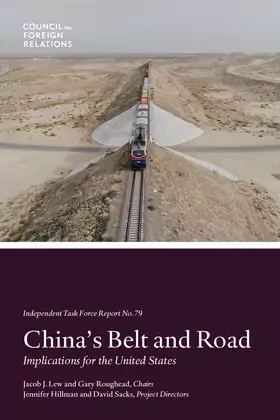Task Force Program
Recent Task Force Reports

U.S.-Taiwan Relations in a New Era
Although a conflict in the Taiwan Strait has thus far been avoided, deterrence has dangerously eroded. To maintain peace, the United States must restore balance to a situation that has been allowed to tilt far too much in China’s favor.

Confronting Reality in Cyberspace
The early advantages the United States held in cyberspace have largely disappeared as the internet has become more fragmented, less free, and more dangerous. The United States needs a new foreign policy for cyberspace to secure its economic and security interests.

China’s Belt and Road Initiative
China’s globe-spanning Belt and Road Initiative poses risks to participating countries and challenges to U.S. interests abroad. The United States should coordinate with partners to promote a secure and sustainable development agenda of its own.
CFR has launched a Task Force on Space Management Policy, chaired by retired Lieutenant General Nina Armagno, USSF, and former Congresswoman Jane Harman. Esther Brimmer, CFR’s James H. Binger senior fellow in global governance, serves as project director. Composed of thirty-five experts, the Task Force is examining challenges in low Earth orbit and beyond, places where the acceleration in human activity is most evident, in a time of heightened geopolitical and commercial competition. The Task Force aims to produce a consensus report in late 2024 that offers findings and recommendations that can help frame the future of the space economy, national security, and the sustainable use of the space domain.
-
Written a year after U.S. and coalition forces went to war with Iraq, a time when American officials faced questions about U.S. staying power, this timely report strongly urges President Bush and sen…
-
Integrating nonlethal weapons (NLW) more widely into the U.S. Army and Marine Corps could have reduced damage, saved lives, and helped limit the widespread looting and sabotage that occurred after th…
-
South Asia may be halfway around the globe from the United States, but what happens there—as the September 11, 2001, terrorist attacks by al-Qaeda tragically underscored—can affect all Americans. Aft…
-
Diplomacy and International Institutions
The world’s opinion of the United States and of U.S. policy has plummeted in the wake of the war in Iraq. The resulting widespread anger, fear, and mistrust, warns this timely report of the independe… -
Terrorism and Counterterrorism
Written nearly two years after September 11, 2001, this report concludes that the United States is drastically underfunding local emergency responders and remains dangerously unprepared to handle a c… -
With mounting costs to American lives and treasure in Iraq, and success there so clearly tied to American staying power and the coherence of U.S. strategy, the Bush administration must sharpen and de…
-
Burma is one of the most tightly controlled dictatorships in the world. For more than four decades, Burma’s 50 million people have been oppressed by military rulers who have systematically impoverish…
-
The United States successfully toppled the Taliban in the Afghan war, but it is in danger of losing the peace following the conclusion of that war. Without greater international support for the trans…
 Online Store
Online Store










